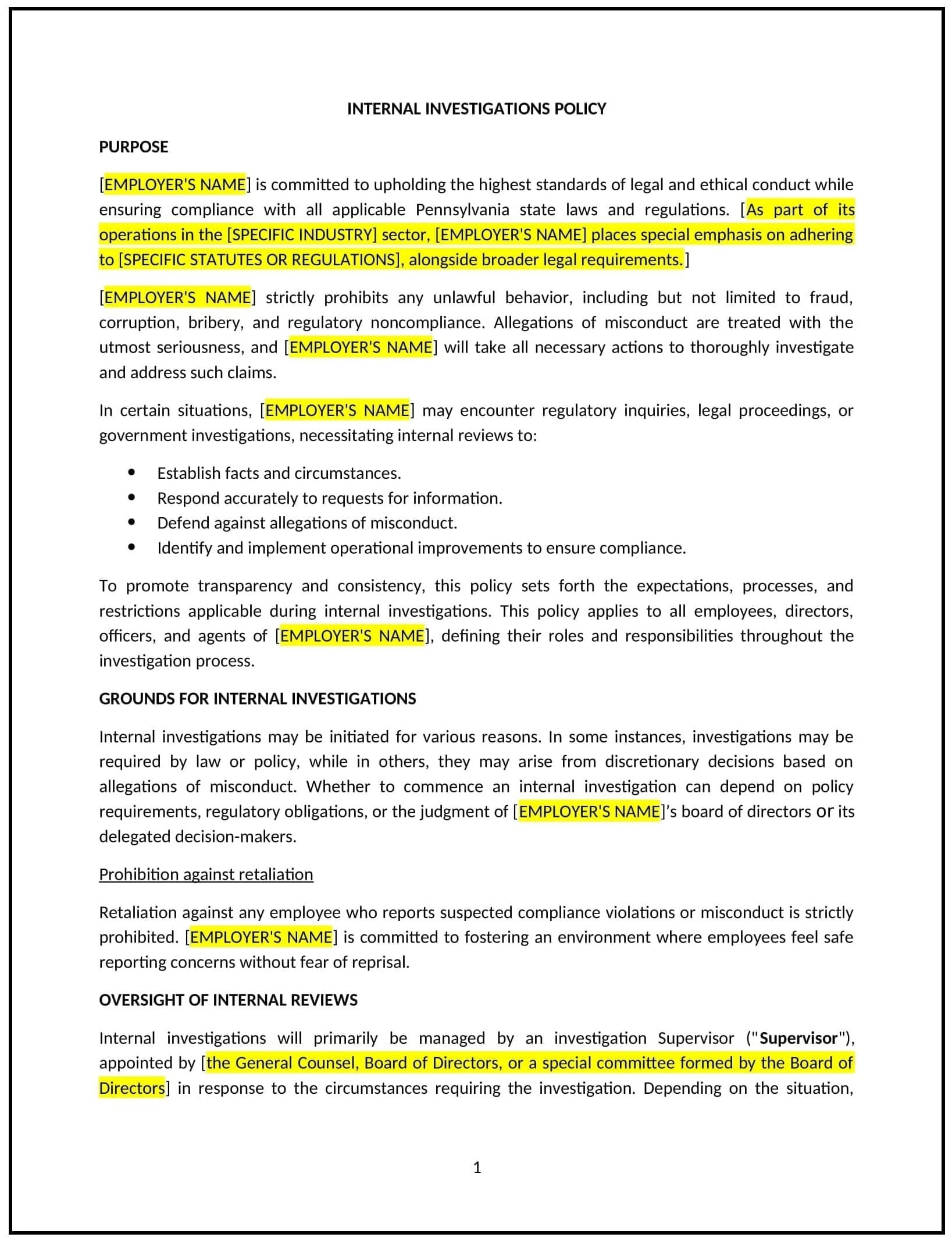Internal investigations policy (Pennsylvania): Free template
Got contracts to review? While you're here for policies, let Cobrief make contract review effortless—start your free review now.

Customize this template for free
Internal investigations policy (Pennsylvania)
This internal investigations policy is designed to help businesses in Pennsylvania establish a structured process for investigating workplace concerns, such as misconduct, harassment, or policy violations. Whether addressing employee complaints, regulatory compliance issues, or operational risks, this template provides clear guidelines for conducting fair and thorough investigations while aligning with Pennsylvania labor laws and federal regulations.
By using this template, businesses can maintain transparency, protect employee rights, and ensure consistent handling of workplace issues.
How to use this internal investigations policy (Pennsylvania)
- Define the scope: Clearly outline the types of incidents and concerns covered under the policy, such as harassment claims, safety violations, or financial misconduct.
- Establish roles and responsibilities: Specify who will oversee and conduct investigations, such as HR professionals, managers, or external investigators.
- Include procedural steps: Provide a detailed framework for the investigation process, including steps for gathering evidence, interviewing witnesses, and documenting findings.
- Address confidentiality: Emphasize the importance of maintaining confidentiality throughout the investigation to protect the integrity of the process and the rights of those involved.
- Reflect Pennsylvania-specific considerations: Tailor the policy to address state labor laws, such as employee privacy rights and local workplace regulations.
Benefits of using an internal investigations policy (Pennsylvania)
A well-structured internal investigations policy supports fairness and organizational integrity. Here's how it helps:
- Promotes fairness: Ensures that all workplace concerns are investigated consistently and impartially.
- Protects employee rights: Safeguards the privacy and confidentiality of employees involved in investigations.
- Reduces risks: Helps businesses comply with Pennsylvania and federal laws, minimizing legal and reputational risks.
- Encourages accountability: Establishes clear expectations for addressing workplace concerns and resolving issues effectively.
- Reflects local needs: Aligns with Pennsylvania’s workforce regulations and industry-specific requirements.
Tips for using an internal investigations policy (Pennsylvania)
- Train managers: Provide training to supervisors on recognizing and reporting potential workplace issues that may require investigation.
- Maintain documentation: Keep detailed records of all investigations, including reports, findings, and resolutions, to ensure transparency and legal compliance.
- Use impartial investigators: Assign investigations to unbiased individuals or teams to ensure objectivity and credibility.
- Communicate outcomes: Share the results of investigations with relevant parties while maintaining confidentiality where required.
- Review periodically: Update the policy to reflect changes in Pennsylvania labor laws, federal regulations, or organizational practices.